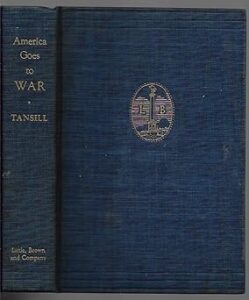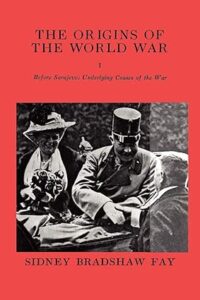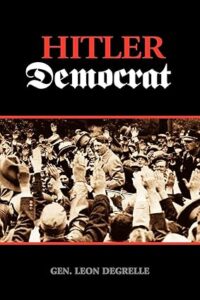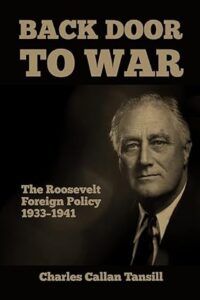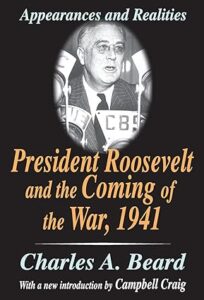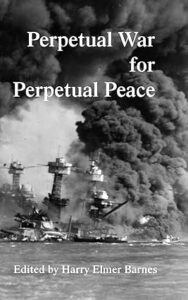World War II is often remembered as a noble struggle, but many serious historians argue it was a war that need not and should not have been fought.
The war’s origins were rooted in World War I—a conflict that itself resulted from political deceit, secret agendas, and manipulations by powerful global players.
Today’s world, shaped by the aftermath of both world wars, continues to reflect the consequences of that era.
Understanding the deeper causes of these wars helps unravel the real forces that drove nations into unprecedented destruction.
World War I: A Forgotten Prelude to Disaster
Although often overlooked, World War I set the stage for World War II.
Its political manipulations and brutal aftermath created the conditions that led to the rise of Adolf Hitler and renewed global conflict.
To fully understand World War II, one must first grasp the true origins of the Great War.
One standout work that remains relevant today is America Goes to War by Charles Callan Tansill, published in 1938 by Little, Brown.
Tansill, a Georgetown University historian and close associate of Willis Carto (publisher of The Barnes Review and a key figure behind American Free Press), rejected the traditional narrative of German war guilt.
Instead, he exposed the roles played by British and American interests in triggering the war.
Tansill’s work positioned him as a central figure among Revisionist historians, especially in the field of U.S. foreign policy.
If you’re interested in exploring this groundbreaking book, it’s worth seeking out a copy.
Other Revisionist Voices on World War I
Two other key works stand beside Tansill’s in exploring the true causes of World War I.
First is The Origins of the World War by Sidney Fay. Originally published in 1929, this classic has been reissued multiple times.
The second is Road to War: America 1914–1917 by Walter Millis, released in 1935 by Houghton Mifflin.
Both books present measured, balanced accounts of how the war unfolded and who was truly responsible.
Additional recommended titles include Woodrow Wilson: Disciple of Revolution by Jennings Wise and Lusitania: An Epic Tragedy by Diana Preston.
These works, referenced by Michael Collins Piper’s book , shed light on the political deceptions and hidden agendas that pushed America into the conflict.
Each of these books deserves a place on the shelf of any reader interested in truth over propaganda.
Hitler’s Rise After Versailles
One of the most provocative voices on the aftermath of World War I is Leon Degrelle, the Belgian General of the Waffen SS.
His first major book, Hitler: Born at Versailles, boldly argues that Hitler’s rise was a direct result of the humiliating treatment Germany faced after World War I.
Though difficult to find, this book offers vivid prose and sharp insight into the diplomatic failures and betrayals of the time.
In 2012, a newer volume by Degrelle titled Hitler Democrat was published by The Barnes Review.
Michael Collins Piper proudly wrote the introduction to this book, describing it as a powerful biography of Hitler that also touches on World War I.
This work avoids the bias found in mainstream narratives and stands as one of the most compelling books on the subject.
Readers are encouraged not to miss this important title.
The Back Door to War: FDR and Pearl Harbor
Let’s revisit Charles Callan Tansill’s later work, The Back Door to War: The Roosevelt Foreign Policy (1933–1941).
First published in 1952 by Regnery, this book investigates the Roosevelt administration’s role in provoking Japan, ultimately leading to the attack on Pearl Harbor.
The phrase “back door to war,” attributed to General Robert Wood, captures President Franklin D. Roosevelt’s indirect route to involving the U.S. in war with Germany by first sparking conflict with Japan.
This work exposes the calculated provocations that pulled America into World War II and is essential reading for anyone seeking the truth about Pearl Harbor.
It remains available through reprint editions and should be purchased as soon as possible.
Charles Beard’s Bold Critique of Roosevelt
Another Revisionist historian, Charles A. Beard, also confronted the mainstream view.
His 1948 book, President Roosevelt and the Coming of the War, published by Yale University Press, is a landmark study.
Like Tansill, Beard challenged the official story of how the U.S. entered the war.
His earlier work, A Foreign Policy for America (1940, Knopf), also offers sharp criticism of America’s global ambitions.
Both books have earned their place among the most respected Revisionist writings.
Readers looking for honest analysis from the mid-20th century should consider adding these works to their collection.
The Jewish Role in Global Conflict
British nationalist Arnold Spencer Leese offered another unique perspective in his short book The Jewish War of Survival.
According to Michael Collins Piper, this fast-paced volume highlights Jewish involvement in creating the political tensions that helped trigger World War II.
Leese’s broader body of work—including the controversial Jewish Ritual Murder—also explores provocative topics.
Leese, a veterinarian and camel expert, brought a range of talents to his writings.
Despite the so-called controversial views, his books remain part of the Revisionist tradition and can still be found through specialty outlets.
A Library of Revisionism: Barnes and Perpetual War
For those seeking a broader collection of Revisionist essays, Perpetual War for Perpetual Peace, edited by historian Harry Elmer Barnes, is a must-read.
The volume brings together writings from scholars like Tansill and others whose names have faded but whose insights remain critical.
The book dives into the lies and cover-ups that shaped the war years, and includes key essays on Roosevelt’s foreknowledge of Pearl Harbor.
Michael Collins Piper considered this one of the best collections of its kind.
Discover the untold story in Robert Taft and the British Plot to Push America to War, where political intrigue and foreign manipulation threatened to silence one of America’s staunchest non-interventionists.
Conclusion: Rethinking the Wars That Shaped Our World
The mainstream narrative of World War I and World War II has long gone unchallenged in classrooms, media, and politics.
But Revisionist historians like Charles Callan Tansill, Charles Beard, Leon Degrelle, and Arnold Leese—alongside researchers like Michael Collins Piper—have brought to light uncomfortable truths buried under decades of propaganda.
Their works reveal a deeper story of secret deals, manufactured conflict, and forgotten warnings.
By studying these alternative perspectives, readers can better understand how two world wars were not inevitable clashes between good and evil, but carefully orchestrated disasters.
As the consequences of those wars continue to echo through today’s geopolitics, it becomes more important than ever to revisit the questions most historians are afraid to ask.

